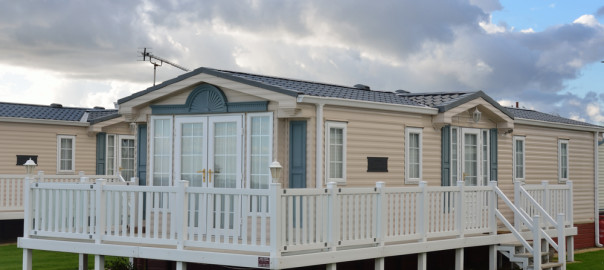Manufactured Homes: Misconceptions & Millions To Be Made
By JD Esajian on August 21, 2015
Are manufactured homes an undervalued gold mine for real estate investors, or just another financial trap?
In their hunt for deals and new real estate investment opportunities, many investors are looking deeper into the manufactured home market. Are the benefits of manufactured homes worth their time, or a big money mistake?
The ‘Eureka’ Moment
Many real estate investors appear to be having their own unique ‘eureka’ moments across the country. They are hunting for viable, cash flow producing properties that come with lower cost acquisitions. Then, out of nowhere, they stumble on to mobile and manufactured homes. They are cheap, offer similar rents to brick and mortar houses, and in some cases seem to offer a lot better value than other types of units. Some very high profile individuals have recently been covered by the financial press for leaping from Wall St. and Silicon Valley, into mobile home investing.
The Stigma
Throughout this conversation, it is important to understand the difference between truly mobile homes and other types of manufactured homes. Mobile homes are often older and in mobile home parks. Manufactured homes have evolved substantially, and include a variety of pre-fab models, including shopping container architecture. There are now even pre-fab, manufactured condo buildings in very prestigious markets. This category of real estate hasn’t just come a long way, it has become trendy, and far more acceptable than it has been for decades. In general mobile and manufactured homes suffer from a lot of bad stigma. This keeps most people from ever considering looking at them or investing in them.
Hard to Finance
It can be really hard to finance these properties. Traditionally, lenders have really disliked these property types. For one; mobile homes can be moved. That makes them a pretty unattractive form of collateral. On one hand, improved data helps mortgage lenders to better offer products, but they also make generalizations based on data too. This means they often don’t lend on them. Most mortgage brokers typically won’t even try to help borrowers because it can mean hours and weeks of wasted time. Loan amounts are lower too, and that means thin profit margins, and another reason it has been hard to find loans for these properties. Then there are comps. New types of architecture, including tiny houses, can be hard to comp, and are often kicked out of underwriting. However, this is changing. Mobile home manufacturers now promote low down payment FHA loans, and some hard money lenders advertise they’ll take on manufactured homes.
Appreciation and Depreciation
Some say they are concerned that mobile homes don’t appreciate that much. Each investor will have to look at the numbers and make that call themselves. However, this may not be an issue for those seeking to rent them out for cash flow and passive income. Part of this problem might be that mobile homes typically depreciate faster than brick and mortar homes. At least in terms of their functional life. Again this might have changed a lot given new technology and a focus on sustainability. Note that mobile homes can be depreciated on taxes over 15 years compared to almost twice that for regular homes and commercial properties.
The Land
The land factor is what really changes the dynamics. Even if the improvements aren’t appreciating that fast, the land might be. In fact, the bulk of most value in most properties in hot areas is in the land any way. If $10M homes go up across the street, that land can have big value, and even a $500k home is likely just to be considered a tear-down. In mobile home parks, investors often just charge residents lot rent, and don’t have to deal with rental property repairs. However, even mobile homes are rarely that mobile. It can cost thousands of dollars to move one to another park or lot. Rarely do owners have that much spare cash. It is more likely they’ll leave the unit which can be rented out for extra cash flow.
Tax Benefits
As with other types of real estate, mobile and manufactured homes come with a lot of tax breaks. In particular, mobile homes can provide faster depreciation, and even bonus depreciation, which can amp up the tax advantages for investors in the short term.
Need for Affordability
Affordability is only getting worse. Even though jobs and wages might grow, rising interest rates can wipe out years of these gains in a month or two. It doesn’t get much more affordable than mobile and manufactured homes. So where there is demand, there is usually strong cash flow.
Will you invest in this niche, or stick with the shelter of bricks and mortar?